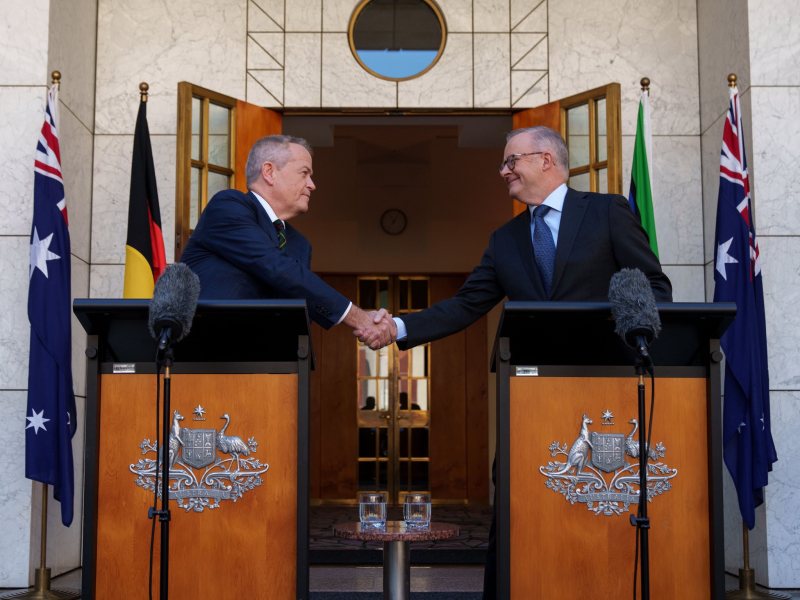Bill Shorten will retire from politics after a 17-year parliamentary career, calling time on championing effective and responsible digital government services to become the University of Canberra’s next vice-chancellor.
Mr Shorten will begin his new role in February and will remain in Cabinet as Government Services and NDIS minister overseeing two of the most digitally enabled government agencies until then.
Reflecting on both the “extraordinary” political highs and lows over his career, Mr Shorten on Thursday said there is still much work to do to support the digital transformation of government service delivery that prioritises “the ability of our citizens to control their own information”.

More than 30 years ago, Mr Shorten joined the Australian Workers Union and eventually worked his way to leader of the Labor party between 2013 and 2019.
Although missing out on the prime ministership at the 2016 and the 2019 federal elections, he has served in a diverse range of portfolios, including financial services, education, industrial relations, and as assistant treasurer.
Mr Shorten said he looks forward to joining the university “rated number one in the world for reducing inequalities”, after its council unanimously approved his appointment on Wednesday afternoon.
He declined to comment on the incoming cap on international student enrolments from the perspective as the University of Canberra’s vice-chancellor, given his ongoing service as a cabinet minister.
Mr Shorten pointed to his recent achievements in shortening call waiting times at Centrelink, faster services payments, and the delivery of verifiable government identification, including the recently announced Trust Exchange for Digital ID.
During the last two years he has spearheaded the government’s response to Robodebt, the push to scrutinise lobby-linked tech contracts signed by the NDIA under the former Coalition government and delivered digital government service transformation.
Immersing himself in digital transformation over the least two years, Mr Shorten has expounded on the virtues of Agile development methodologies and the success of digital incubators in quickly delivering new government services.
He also brought in former NSW digital minister Victor Dominello to lead a Services Australia advisory group to help set the future of myGov, digital ID, and other digital services.
The appointment of the advisory board was a recommendation of a myGov User Audit that Mr Shorten commissioned in the first few months of his time as Government Services minister.
During his tenure, the federal government also made large additional funding commitments to sustain myGov long-term in recognition of its importance as critical government infrastructure, meeting another key recommendation in the audit.
Mr Shorten said he has “gratefully accepted the Prime Minister’s request” to remain in Cabinet and finalise the government’s “first term reform agenda for the NDIS and government service” but is “thankful to be leaving Parliament while there are still some people who want me to stay”.
Prime Minister Anthony Albanese said Mr Shorten’s work had made the government stronger and the nation better, pointing to “his work with the trade union movement… his support for people with disabilities and their families and carers, and his support for the victims of Robodebt”, as most deserving of praise.
Do you know more? Contact James Riley via Email.

